
Juan Alvarez, PhD

Dr. Alvarez is an Assistant Professor of Cell and Developmental Biology at the University of Pennsylvania Perelman School of Medicine, and member of Penn’s Institutes for Diabetes, Obesity and Metabolism, Chronobiology and Sleep, and Regenerative Medicine. Dr. Alvarez’s research focuses on the interplay between metabolic cycles, circadian oscillators, and islet maturation. This work involves single-cell and high-throughput experimental and computational approaches, with a view to rationally engineer mature stem cell-derived islet organoids as human models of islet development & physiology, and as a novel replacement therapy for insulin-dependent diabetics.
Dr. Alvarez completed an HHMI LSRF Research Fellowship with the Melton group at Harvard University, asking How circadian rhythms shape islet development and diabetes, using human organoids and mouse models. He received his PhD in biology from MIT, where he studied the modulation of lineage-specific cell differentiation by long non-coding RNAs, and his AB in molecular biology from Princeton University, where he studied the role of DNA self-catalytic depurination in site-specific mutagenesis.
Vibha Anand, PhD
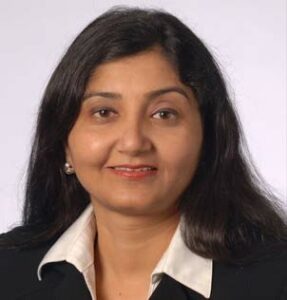
Vibha Anand, PhD, is Senior Research Scientist and Manager in the Biomedical AI Healthcare & Life Sciences (HCLS) Research at IBM Thomas J. Watson Research Center. She is a Fellow of American Medical Informatics Association (FAMIA). Dr. Anand has more than 20 years of research experience in applications of information technology, machine learning, and AI methods to the healthcare domain. Before IBM Research, Dr. Anand was Assistant Professor of Pediatrics at Indiana University, Case Western Reserve University, and Pediatric Institute, Cleveland Clinic. Dr. Anand’s early research at Indiana University focused on development and evaluation of clinical decision support via computer automation. Evaluated in many observational studies and clinical trials for childhood disease surveillance and management, this work was supported by AHRQ, CDC and NIH, and resulted in high impact publications to inform pediatric screening and management guidelines. At IBM Research, Dr. Anand has led the Type 1 Diabetes Intelligence (T1DI) group, an international consortium supported by JDRF since 2017, among its academic partners and IBM Research. The group’s mission has been to better characterize and refine staging in the presymptomatic phase of type 1 diabetes (T1D) development. Using machine learning and visualization methods for computational modeling, and by harmonizing data from past natural history studies of T1D in at-risk children, the group has extensively investigated heterogeneity in progression to diabetes. This collaborative work has resulted in several high impact publications in the field with novel insights to inform ongoing and future prevention trials, disease staging and screening efforts for public health translation. Dr. Anand’s current research is focused on applications of foundational AI methods. While in early phases, it is geared towards preclinical development of markers in inflammatory conditions with applications in drug development and discovery.
Dr. Anand received her undergraduate degree in Electrical Engineering from Motilal Nehru National Institute of Technology, India, and PhD in Biomedical Informatics from Indiana University.
Peter Arvan, MD PhD

Dr. Arvan received his bachelor’s degree from Cornell University and his M.D. and Ph.D. (in Cell Biology) from Yale University Following residency in Internal Medicine, Dr. Arvan completed fellowship training in Endocrinology at Yale and then became an Assistant and later Associate Professor at Harvard Medical School (Beth Israel Hospital). He then moved and became Full Professor at Albert Einstein College of Medicine in New York. Since 2003, Dr. Arvan has served as Chief of the Division of Metabolism, Endocrinology & Diabetes at the University of Michigan. During this period of time he spent 8 years as the Director of the University of Michigan Comprehensive Diabetes Center. Throughout, Dr. Arvan has been designated as the Brehm Professor of Diabetes Research, one of many endowed professorships within the Caswell Diabetes Institute at the University of Michigan.
Dr. Arvan has a long record of successful trainees who are current faculty at academic institutions around the world. Dr. Arvan is an elected member of the ASCI and AAP; he won the RR Bensley Award (Am. Assoc. Anat.); was a Pew Scholar in the Biomedical Sciences, Pfizer Visiting Professor, Burroughs-Wellcome Visiting Professor, the Sidney Ingbar Lecturer (Harvard); the PSTP Visiting Professor (Wash. U.), the McKenzie Lecturer (U. Miami), the Harrison Society Visiting Professor (Vanderbilt), and the Distinguished Faculty Award (U. Michigan). Dr. Arvan’s research work has focused on peptide hormone synthesis, especially insulin synthesis. He is specifically interested in understanding how peptide hormone protein precursors mature into medically-active hormones, and how these steps may go wrong in endocrine diseases such as diabetes.
Jessie Barra, PhD
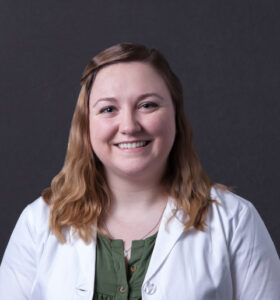
Dr. Barra completed her graduate training at the University of Alabama at Birmingham in 2021, focused on type 1 diabetes (T1D) and islet transplantation rejection under the mentorship of Dr. Hubert Tse. Her thesis project focused on the use of tannic acid-containing encapsulation materials to protect islet transplants from immune-mediated rejection as a potential treatment for T1D. After completing her graduate studies, she decided to pursue further training in the field of stem cell-derived beta cells and to foster a better understanding of the complicated interactions that drive human autoimmune recognition of insulin producing cell populations. To that end, she decided to join the laboratory of Dr. Holger Russ at the University of Florida for her post-doctoral studies. Her current research focus in on understanding how to genetically engineer human pluripotent stem cells to better protect them from autoimmune recognition and destruction using immune modulatory receptor expression and regulatory CAR-T cell technologies. She is also interested in understanding the developmental cues that drive survival of autoreactive thymic T cell development.
Giovanni Bossi, PhD

Giovanna Bossi, PhD, is Principal Scientist at Immunocore Ltd. She has over 16 years’ experience in research and development in industry, gained at Immunocore Ltd, UK. Giovanna leads cell biology research and preclinical activities aiming to develop TCR-based therapeutics for treatment of autoimmune diseases such as T1 diabetes and vitiligo. Giovanna joined the Disease Biology Autoimmune group in 2017 after spending previous 9 years in Research Oncology where she contributed to understand mechanism of action of the first in human ImmTAC (tabentafusp, or Kimmtrack commercial name) for treatment of uveal melanoma and cutaneous melanoma. KIMMTRAK® is the first and only FDA-approved treatment that, in a randomized clinical trial, was proven to significantly extend overall survival for HLA-A*02:01–positive adults with uveal melanoma that cannot be removed by surgery or has spread.
Following the completion of her DPhil from the Cellular Immunology Unit at the University of Pavia (Italy), Post Doctoral Research associated positions at Cancer Institute IFOM-IEO in Milan and at the Sir William Dunn School of Pathology at University of Oxford, she joined Immunocore Ltd in 2006. Her area expertise span from T cell biology to cancer immunotherapy and autoimmune immunotherapy on which she has presented at international meetings and has contributed to various publications.
Todd Brusko, PhD

Dr. Todd Brusko is appointed as a Professor in the Department of Pathology at the University of Florida. He currently serves as the Assistant Dean of Basic Research for the College of Medicine and the Research Director of the UF Diabetes Institute.
The research interests of the Brusko Laboratory are centrally themed around understanding the mechanisms by which the immune system maintains a state of control, often referred to as immunological tolerance. This includes studies of the innate and adaptive immune system, with a particular focus on adaptive immune receptor diversity and control through costimulation. A portion of the Brusko lab is dedicated to understanding the genetic variants controlling these processes, as well as identifying the mechanisms at play in individuals who develop immune-mediated diseases. Dr. Brusko has previously published over 140 studies reporting cellular immune defects in patients with autoimmune diseases, sepsis, and cancer and investigated cellular immune mechanisms and biological basis of such diseases. A major goal of the Brusko Laboratory is to create a basic understanding of immune system development over the human lifespan in peripheral blood and within central and peripheral immune tissues. Toward this goal, the Brusko Laboratory has been involved in several team science projects including the Network for Pancreatic Organ donors with Diabetes program (JDRF – nPOD), the Human Biomolecular Atlas Program (HuBMAP –NIH Directors Fund), NIH Human Islet Research Network -HPAP program, and the Human Atlas for Neonatal and Developmental Early Life – Immunity (HANDEL-I) program supported by the Helmsley Charitable Trust. These efforts are enabled through precision medicine genotyping, single cell profiling, immune repertoire analysis, and high-parameter spectral flow cytometry. Collectively, these efforts provide a foundational framework for defining immunity in health and deviations of immune cells indicative of disease to create robust biomarkers and targeted immune interventions to restore immune regulation in T1D.
Susanne Cabrera, MD
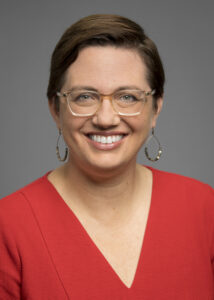
Dr. Susanne Cabrera MD is an Associate Professor of Pediatrics at the Medical College of Wisconsin. She directs the clinical and translational research arm of the Max McGee Diabetes Research Center and is the Director of the Children’s Wisconsin Diabetes Program. Dr. Cabrera’s clinical/translational research has focused on the role of environmental mediators of intestinal inflammation in promoting T1D pathogenesis in those with genetic susceptibility. She has received funding from the JDRF, ADA, and NIH to investigate the role of probiotics, gluten, and non-nutritive sweeteners in immune dysregulation in those at-risk of developing diabetes. Currently, she is conducting an NIH funded randomized control clinical trial to determine the impact of a single-strain probiotic on beta-cell function and systemic inflammation in individuals recently diagnosed with T1D. Dr. Cabrera’s work as a clinical researcher and diabetes clinician has informed more recent investigations into how our field can reduce T1D health disparities through more equitable research participation across the diverse T1D population. Dr. Cabrera is the Co-Chair of the TrialNet Underrepresented Minority Engagement Committee, focused on enhancing the recruitment and retention of historically underrepresented minorities into TrialNet studies.
Carla Di Dedda, PhD

Dr. Carla Di Dedda is a Post-doctoral Fellow in the Transplantation Immunology Lab at the Diabetes Research institute in Milan. She holds a MS in Medical Biotechnology and a PhD in Molecular Medicine from San Raffaele University, Milan, Italy.
Carla’s work is focused on the characterization of GLUT1 blockade as a strategy to control activation of autoreactive T cells in patients with T1D following pancreas or islet transplantation. Carla spent 18 months in Alberto Pugliese’s lab at City of Hope, where she studied T cell subsets and the relative expression of GLUT1 in patients with T1D and SPK patients experiencing autoimmunity recurrence.
Yuval Dor, PhD
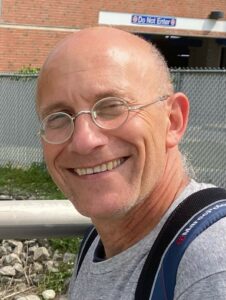
YUVAL DOR, PhD, is a professor of biology at the Hebrew University Faculty of Medicine in Jerusalem, Israel. He earned his PhD in vascular biology at the Hebrew University with Eli Keshet, and trained as a post-doc at Harvard University with Doug Melton until 2004. He studies the molecular mechanisms by which cells regenerate and die. Much of his work focuses on beta-cells, most recently in the context of islet inflammation in early stage type 1 diabetes. He has also developed a novel blood test to study cell death in humans, using methylation signatures of cell-free circulating DNA.
Zeina Drawshy, MS

Zeina Drawshy, currently in the final step toward completing my PhD in biochemistry, metabolism, and endocrinology at the Hebrew University of Jerusalem in Israel. I conducted both my MSc and PhD degrees under the guidance of Professor Yuval Dor and Dr. Agnes Klochendler.
My work focused on the development of an experimental platform based on cell type-specific DNA methylation signatures, to provide an accurate assessment of alterations in pancreatic cell type fraction and function in diabetes.
Kyle Gaulton, PhD
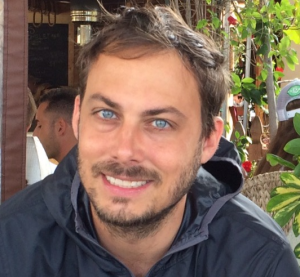
Kyle is Associate Professor of Pediatrics and Winkler Endowed Chair in Type 1 Diabetes at UC San Diego. He has a BAS in computer science from the University of Pennsylvania, a PhD in genetics and molecular biology from the University of North Carolina at Chapel Hill, and did postdoctoral training in statistical genetics at the University of Oxford and Stanford University.
Kathleen Gillespie, PhD

Kathleen Gillespie, a molecular biologist interested in the mechanisms underlying autoimmunity leads the Diabetes Research Group at the University of Bristol, UK. She is Chief Investigator of the long-running Bart’s Oxford (BOX) family study of type 1 diabetes which has been recruiting children with type 1 diabetes and their families since 1985. Studies of age-at-onset of diabetes have been a recurrent theme; she showed that HLA mediated susceptibility to T1D is decreasing over time with the most dramatic effects in children diagnosed under 5 years; that children with Down syndrome develop early onset type 1 diabetes; and that residual C peptide secretion is not observed in children in BOX diagnosed under 5 years. A current focus is on why some children develop type 1 diabetes in the first few years of life while others who have the markers of ongoing islet autoimmunity are not diagnosed until adulthood.
Mark Huising, PhD
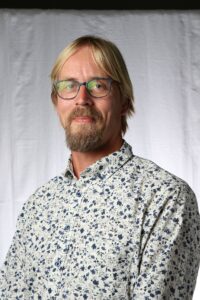
Dr. Huising is a Professor at the University of California Davis where he leads a lab focused on the important role of intra-islet feedback on the regulation of islet fate and function. He completed his formal undergraduate and graduate education in his native the Netherlands after moving to California to train as a postdoctoral fellow at the Salk Institute under the guidance of the Wylie Vale. It was here that he laid the foundation for his current research program that has focused on local crosstalk between different endocrine cells in pancreatic islets. Mark discovered the function of the peptide hormone Ucn3 as the principal paracrine factor to activate pancreatic delta cells. This discovery has led to a broad focus on pancreatic delta cells and their physiological contribution to glucose homeostasis in response to a variety of physiological and metabolic cues including ghrelin and ligands for the FFAR4 fatty acid receptor. In a separate line of research, Mark discovered an entirely new beta cell type that lacks key maturity markers including Ucn3 and Glut2 that had gone unnoticed for decades. This discovery highlights the heterogeneity that exists among beta cells that betrays beta cell plasticity that is amplified under conditions of beta cell stress during diabetes. Research from Mark’s lab uses a combination of carefully validated mouse models with sophisticated live imaging experiment to observe the kinetics of multiple signaling cascades directly in intact islets in real time to quantify the changes in signaling dynamics that underly the regulation of insulin and glucagon release. Mark is an AAAS fellow, a UC Davis Chancellor’s fellow the recipient of a 2023 UC Davis Graduate Mentoring Award. Mark is Climate Advocate at the University of California Davis campus, for which he was awarded 2021 UC Davis Faculty Sustainability Champion.
Klaus Kaestner, PhD
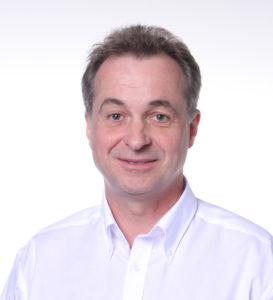
Dr. Klaus H. Kaestner is the Suor Butterworth Professor of Genetics at the University of Pennsylvania Perelman School of Medicine, and member of Penn’s Institute for Diabetes, Obesity and Metabolism. Dr. Kaestner received his Ph.D. from the Johns Hopkins University School of Medicine, and completed a research fellowship at the German Cancer Research Center in Heidelberg.
Dr. Kaestner’s work is focused on the understanding of the genetics of glucose homeostasis and organ development. In addition, his laboratory has pioneered the development of functional genomics tools applicable to the study of the endocrine pancreas. Dr. Kaestner co-directs the Human Pancreas Analysis Program (HPAP) which performs deep phenotyping of the human endocrine pancreas to better understand the cellular and molecular events that precede and lead to beta-cell loss and/or dysfunction in type 1 diabetes (T1D) and type 2 diabetes (T2D).
Dr. Kaestner has served on multiple review panels for the Juvenile Diabetes Research Foundation and for the National Institute for Diabetes, Digestive and Kidney Diseases. Dr. Kaestner was member of the Trans-NIDDK Strategic Planning Group on Genetics, Genomics, and Bioinformatics in 2000. Dr. Kaestner serves on the editorial boards of of the Journal of Clinical Investigation and is co-editor-in-chief of Cellular and Molecular Gastroenterology and Hepatology. Dr. Kaestner is member of the American Diabetes Association and the Endocrine Society, which awarded him the Roy O. Greep Award for Outstanding Research in 2017.
Esra Karakose, PhD
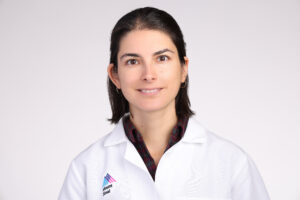
After completing my BSc and MSc degrees in Turkey, I obtained my PhD degree at the Max Planck Institute for Biochemistry in Germany, focusing on integrin receptor signaling that is crucial for cell-matrix interactions. I studied integrin signaling in the context of endoderm development which triggered my interest in pancreas development and beta cell biology. The main focus of my current research is to understand the genetic and epigenetic mechanisms that govern human pancreatic beta cell replication. Since diabetes results from the lack of sufficient numbers of insulin-producing beta cells, one measure to reverse diabetes is to restore normal beta cell mass and function. Therefore, I aim to develop new therapies for diabetes that will work through restoring beta cell mass.
In a recent study, I demonstrated that TGF beta and DRYK1A signaling synergize to induce unprecedented rates of human beta cell proliferation. Further, in a more recent study I showed that GLP1R agonists also synergize with DYRK1A signaling to induce robust levels of beta cell proliferation. In addition to these approaches, I recently started using single cell approaches to better understand the mechanisms that control beta cell replication. In this study, we analyzed the transcriptome of cadaveric human islets treated with beta cell regenerative drugs using single cell RNA-seq. Our results revealed that the lineage dynamics in the human islets is more sophisticated than initially anticipated when islets are subject to regenerative drugs. Importantly, we showed that cycling alpha cells are the main target of regenerative drug treatment in human islets and they have the potential to transdifferentiate into human beta cells.
Victoria Kuznetsova
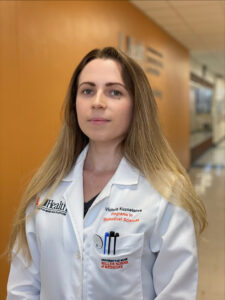
Victoria Kuznetsova is a third-year graduate student pursuing Ph.D. at the University of Miami Department of Microbiology and Immunology. She completed her undergraduate studies at Florida International University. Under the mentorship of Dr. Paolo Serafini, she is interested in advancing our comprehension of the T cell role in Type 1 Diabetes (T1D) and in manipulating T cell exhaustion in autoimmunity. She participates in the identification of two RNA aptamers highly selective for human and mouse beta cells. Building on these aptamers, she is developing bifunctional RNA therapeutics for modulating β cell biology in vivo and inhibiting the autoimmune process. She aspires to facilitate the targeted delivery of therapeutics to beta cells to maximize their efficacy and minimize potential off-target effects.
Christiana Lekka, PhD
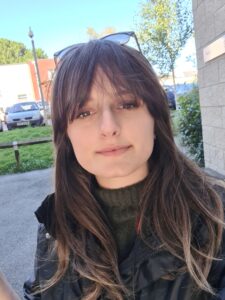
Christiana is a postdoctoral researcher affiliated with the Islet Biology Exeter (IBEx) team at the University of Exeter. Her PhD delved into investigating Tau protein expression in the human pancreas, employing advanced techniques such as immunohistochemistry, multiplex immunofluorescence and machine learning (ML)-driven image analysis. Currently, she is funded by the Steve Morgan Foundation Grand Challenge and utilises these refined methodologies along with data sciences to explore the expression of non-classical HLA-I in the development and progression of Type 1 Diabetes (T1D). Driven by a profound passion for unravelling the histopathology of the pancreas in T1D, Christiana aims to integrate wet-lab techniques and data science to actively contribute towards delaying the progression of T1D.
Alice Long, PhD
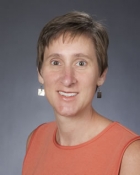
Dr. Alice Long received her BS degree in Biology from Macalester College in St. Paul, MN, and earned her PhD in Immunology from Emory University in Atlanta, GA. She then pursued post-doctoral studies at the University of California at Davis studying the etiology and pathogenesis of primary biliary cirrhosis, an autoimmune disease of the liver. She next joined a Seattle-based biotechnology company, Xcyte Therapies, where she helped develop adoptive T-cell therapies for multiple diseases. In 2005, she joined Benaroya Research Institute (BRI) as a staff scientist. In 2011, she joined the faculty at BRI and is currently an Associate Member and Manager of the Human Immunophenotyping Core.
Dr. Long’s lab is a translational immunology lab focused on using human samples to understand etiology, pathogenesis, disease heterogeneity and treatment response. Specifically, her current research includes three inter-related projects: 1) causes and consequences of reduced IL-2 signaling in T1D subjects, 2) cellular definition, function and stability of CD8 exhaustion associated with beneficial response to therapy, and 3) identification of biomarkers of disease progression.
Roberto Mallone, MD, PhD
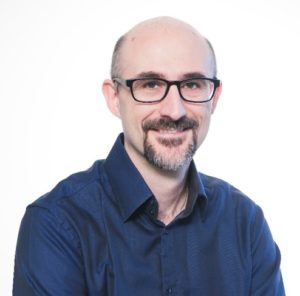
R. Mallone received his MD PhD degree from the University of Turin, Italy. After a Postdoc with Jerry Nepom at the Benaroya Institute in Seattle, he moved to Paris where he is currently Professor of Immunology at Université Paris Cité, Adult Diabetologist at the Cochin Hospital and leads a research team at the INSERM Cochin Institute. He is also director of a satellite research lab at the Indiana Biosciences Research Institute in Indianapolis. His research spans from preclinical studies with human samples and mouse models to clinical trials. It focuses on autoimmune T cells and the understanding of type 1 diabetes mechanisms in order to develop T-cell-based biomarkers and therapeutics.
Major contributions to the field include the demonstration of the role of CD8+ T cells in beta-cell autoimmunity, the development of T-cell assays to clarify disease mechanisms and therapeutic modifications, and the exploration of perinatal vaccination strategies. More recently, he described a universal state of ‘benign’ islet autoimmunity imprinted in the thymus and the first immunopeptidome of human beta cells, identifying novel granule antigens targeted by autoimmune T cells.
Miguel Medina-Serpas
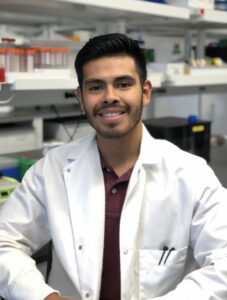
Miguel Medina-Serpas is a rising fifth year Ph.D. candidate in the lab of Dr. Todd Brusko at the University of Florida Diabetes Institute.
My work has focused primarily on investigating tissue specific immune responses in primary donor tissue, primarily within the pancreas and draining pancreatic lymph nodes, using a combination of spatial-omic and histological approaches to identify novel tissue-specific immune phenotypes and to interrogate aspects of cellular localization and intercell communication at distinct clinical stages of T1D.
Aaron Michels, MD
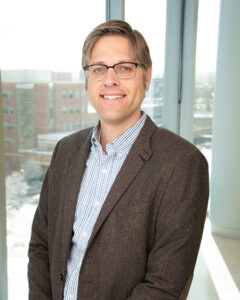
Dr. Michels is a Professor of Pediatrics, Medicine, and Immunology at the Barbara Davis Center for Diabetes, which is part of the University of Colorado. He is a physician-scientist that has lived with type 1 diabetes for more than three decades and is committed to caring for patients with diabetes along with conducting research to prevent and ultimately cure the disease. His research focuses on understanding the immune mediated mechanisms of type 1 diabetes development and those that provide dominant protection from disease. Insights from this research have led to the design and testing of specific therapies to stop the autoimmune destruction of insulin producing pancreatic beta cells. There is also a strong focus within his laboratory to measure and monitor diabetes-specific T cell receptor sequences across the stages of type 1 diabetes development.
Noel Morgan, PhD
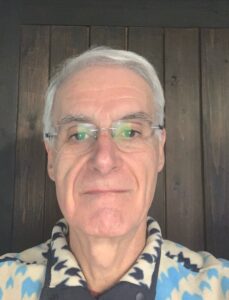
Noel Morgan’s research team has undertaken extensive studies of the aetiopathology of type 1 diabetes using several collections of human pancreas. They have also conducted extensive studies of the signaling pathways regulating islet responses to nutrients, hormones and immune regulators. During their studies, the team has exploited the world’s largest biobank of pancreas samples recovered at autopsy from patients newly diagnosed with the disease (Exeter Archival Diabetes Biobank) to study the aetiology of type 1 diabetes. They have used these to monitor factors such as insulitis profiles, insulin processing, markers of enteroviral infection, interferon responses and HLA protein expression in type 1 diabetes. Informed by their analysis of the human pancreas in health and disease, the team has conducted novel studies of the signalling mechanisms regulating pro-inflammatory and anti-inflammatory processes in beta-cells in type 1 diabetes. This work has culminated in the definition of two distinct type 1 diabetes endotypes at the level of the pancreas, which are differentiated according to age at diagnosis.
Noel Morgan began his career at University of Leicester and then undertook postdoctoral work at Vanderbilt University (Nashville, Tn, USA). He developed an independent research programme in islet biology while on the faculty of Keele University and was awarded an Albert E. Renold Fellowship by EASD to study adrenoceptor signalling in b-cells at Duke University, NC. He was appointed to a personal chair at Keele University and subsequently moved to University of Exeter, Devon, UK in 2002, as Professor of Endocrine Pharmacology. In 2017, he was awarded the Dorothy Hodgkin Lectureship by Diabetes UK in recognition of his contributions to the field.
Geetha Mylvaganam, PhD

Geetha Mylvaganam, Ph.D. is a Senior Director of Research at Abata Therapeutics and Program Lead of the Type 1 Diabetes Program. She received her Ph.D. in Immunology and Molecular Pathogenesis from Emory University in Atlanta, GA where she studied T cell dynamics in the context of SIV infection and immune correlates of viral control. She conducted her post doctorate at the Ragon Institute of MGH, MIT and Harvard in Cambridge, MA where she continued to study CD8 T cell responses in the context of HIV infection, potential regulators of CD8 T cell trafficking to secondary lymphoid sites, and how these could be leveraged for the development of HIV therapeutics. Geetha currently works at Abata therapeutics to lead their novel TCR targeting T regulatory cell therapy program for the treatment of Type 1 Diabetes.
Julia Panzer, PhD
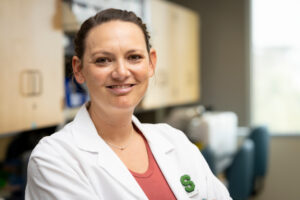
Dr. Julia Panzer is a staff scientist in the Pugliese Lab at City of Hope. She initially trained as a chemist and pursued her Ph.D. in islet physiology in Germany. During her doctoral studies she implemented the human slice platform to study islets in their native environment. Her current projects focus on alpha cell function and beta cell regeneration in type 1 diabetes.
Audrey Parent, PhD
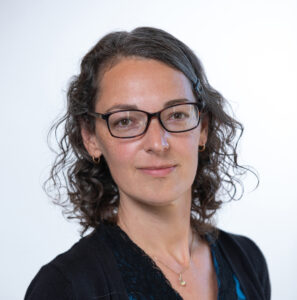
Dr. Parent is an Associate Professor in the UCSF Diabetes Center. Her research is focused on understanding changes in immune tolerance that lead to autoimmune destruction of pancreatic insulin-producing beta cells in type 1 diabetes (T1D). Her lab is combining directed differentiation of human pluripotent stem cells into cell types relevant to T1D with genome engineering approaches to model the human disease. They are also developing strategies to produce immune evasive stem cell-derived pancreatic beta cells to accelerate clinical translation of beta cell replacement therapies to treat diabetes.
Edward Phelps, PhD
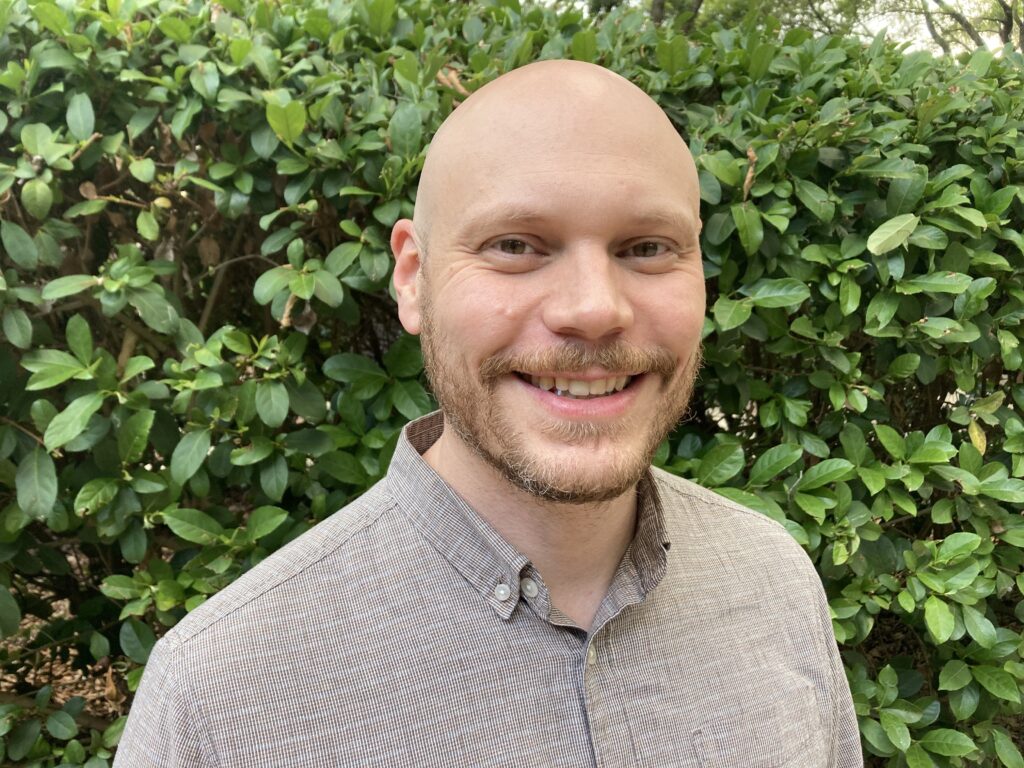
Dr. Phelps’s research is focused on biomaterials engineering as a strategy for regenerative therapies with emphasis in the area of type 1 diabetes. Phelps specializes in bio-synthetic cellular microenvironments (e.g., bio-functionalized polyethylene-glycol hydrogel) for controlled presentation of bioactive signals to drive regenerative responses in vivo. He has developed biomaterials for therapeutic angiogenesis and to improve the viability and function of transplanted insulin-producing pancreatic islets.
Phelps is working to develop novel immunomodulatory biomaterials strategies to counter autoimmunity in type 1 diabetes. Phelps also uses advanced light microscopy methods to investigate aspects of basic pancreatic islet biology including the immunopathogenesis of diabetes autoantigens (e.g., GAD65) and the role of neurotransmitter paracrine signaling in regulating islet function.
Chaitra Rao, PhD
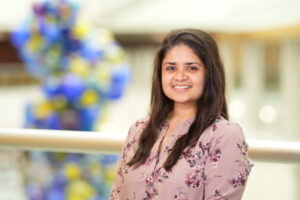
Chaitra is a Postdoctoral Fellow in Emily Sims’ lab at the IU Center for Diabetes and Metabolic Diseases. She holds a BS in Biotechnology and an MS in Clinical Virology from Manipal University, Karnataka, India. Chaitra earned her PhD in Cancer Research from the University of Nebraska Medical Center, Omaha.
Chaitra’s work in Sims’ lab is focused on molecular and clinical analysis of islet beta cell-derived extracellular vesicles that can influence immune responses and contribute to the autoimmune process in type-1 diabetes. Her research involves investigating the role of beta cell extracellular vesicle PD-L1 in islet intercellular communication and exploring the heterogeneity of beta cell survival throughout the course of type-1 diabetes.
Maria J. Redondo, MD, PhD, MPH
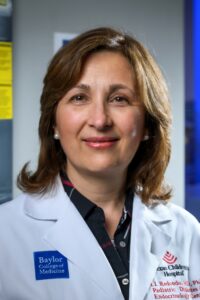
Dr. Redondo is Professor of Pediatrics at Baylor College of Medicine and a Pediatric Endocrinologist at Texas Children’s Hospital in Houston, Texas, United States.
Dr. Redondo’s research overall goal is to dissect the heterogeneity of diabetes to bring closer the goal of precision medicine. One of her NIH NIDDK funded projects aims to incorporate genetic risk scores in the predictive model for type 1 diabetes and use genetics to improve the selection of candidates for prevention trials in the Type 1 Diabetes TrialNet Study. Her Diabetes Study in Children of Diverse Ethnicity and Race (DISCOVER), also funded by NIDDK, seeks to use genetics for timely and accurate diagnosis of diabetes type in children of diverse ancestry with the ultimate goal to improve clinical outcomes. She is also part of the NIDDK-funded Rare and Atypical Diabetes Network (RADIANT), and the American Diabetes Association Precision Medicine in Diabetes Initiative. She was part of the Precision Medicine in Diabetes Initiative funded by the American Diabetes Association and the European Association for the Study of Diabetes, and is now part of the NIDDK-sponsored Heterogeneity of Diabetes project.
Kyle Rose, MBA

Kyle is first and foremost an advocate focused on raising the voice of families with diabetes, increasing awareness and expanding access to care. His experience includes mission inspired start-ups like mySugr (where he was the first employee), Bigfoot Biomedical, Team Type 1 and TheraSense as well as NGOs such as IDF, Diabetes Education and Camping Association, DiabetesWise at Stanford University and the Innovative Medicines Initiative (IMI) / INNODIA. Several of the entrepreneurial ventures in which Kyle has participated have resulted in major acquisitions or global agreements. Kyle takes great pride in knowing that products and services he has helped design, shape, and deliver are being distributed on a global scale to fellow people with diabetes, but firmly believes we can do better in serving the needs of people with diabetes. He has lived with Type 1 Diabetes for more than 25 years.
He received his BS degree in Chemical Engineering from Cornell University and his MBA from INSEAD in Fontainebleau, France where he is a member of the Dept. of Healthcare Management’s visiting faculty.
Guido Sebastiani, PhD
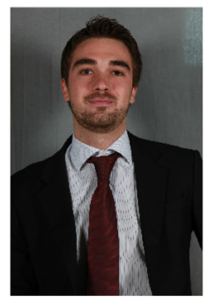 Dr. Guido Sebastiani holds the position of Associate Professor of Laboratory Medicine at the University of Siena in Italy. With a focus on non-coding RNAs biology, he has become a specialist in autoimmune and metabolic diseases. Throughout his career, Guido has dedicated his efforts to unraveling the intricate role of microRNAs as both mediators and biomarkers in the context of diabetes. His extensive contributions to the field have significantly advanced our understanding of the molecular mechanisms underlying this complex and prevalent disease.
Dr. Guido Sebastiani holds the position of Associate Professor of Laboratory Medicine at the University of Siena in Italy. With a focus on non-coding RNAs biology, he has become a specialist in autoimmune and metabolic diseases. Throughout his career, Guido has dedicated his efforts to unraveling the intricate role of microRNAs as both mediators and biomarkers in the context of diabetes. His extensive contributions to the field have significantly advanced our understanding of the molecular mechanisms underlying this complex and prevalent disease.
Melanie Shapiro, PhD
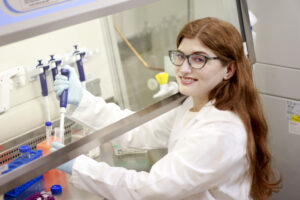
Dr. Melanie Shapiro is a JDRF Postdoctoral Fellow in the laboratory of Dr. Todd Brusko in the Department of Pathology, Immunology, and Laboratory Medicine at the University of Florida College of Medicine. Her research during her postdoc and PhD has focused on the immunology and genetics of type 1 diabetes (T1D). Dr. Shapiro’s graduate work included two major projects: identification of serological biomarkers for T1D prediction in at-risk subjects and elucidation of immunological mechanisms of T1D pathogenesis in the non-obese diabetic (NOD) mouse. As a postdoc, Dr. Shapiro’s studies have focused on the application of precision genetics to understand the heterogeneity of T1D pathogenesis and responsiveness to prevention therapies.
Jay Skyler, MD, MACP, FRCP
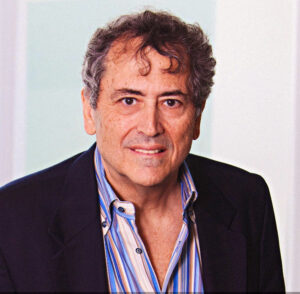
Jay S. Skyler, MD, MACP, FRCP is currently a Professor of Medicine, Pediatrics, & Psychology, in the Division of Endocrinology Diabetes & Metabolism, Department of Medicine, University of Miami Leonard M. Miller School of Medicine, Miami, Florida. He served as Director of that Division from 2000 to 2004. He is Deputy Director for Clinical Research and Academic Programs at the Diabetes Research Institute, University of Miami. He also is an Adjunct Professor of Pediatrics at the Barbara Davis Center for Childhood Diabetes, University of Colorado at Denver. For 22 years (1993-2015), he was Study Chairman for the NIH Diabetes Prevention Trial for Type 1 Diabetes (DPT-1) and its successor Type 1 Diabetes TrialNet, an international network conducting clinical trials to interdict type 1 diabetes. Dr. Skyler currently is Chair of the Strategy Advisory Group for INNODIA, a European consortium of academic and industry groups developing innovative approaches towards understanding and arresting type 1 diabetes; and Chair of the Strategic Advisory Board of the EDENT1FI consortium (European action for the Diagnosis of Early Non-clinical T1D for Disease Interception). He was President of the American Diabetes Association and Vice-President of the International Diabetes Federation. He was founding Editor-in-Chief of Diabetes Care and founding Scientific Editor of the International Diabetes Monitor.
Stephan Speier, PhD
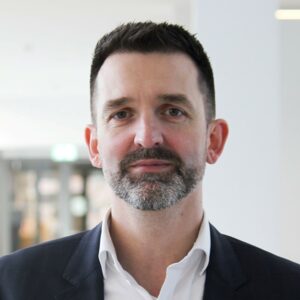
Stephan Speier studied from 1995 to 2000 human biology at the Philipps-University in Marburg, Germany, with major in Physiology. Subsequently, he conducted his PhD-thesis project at the Max Planck Institute of Biophysical Chemistry in Göttingen, Germany, in which he developed the pancreas tissue slice platform to study islets of Langerhans in the in situ environment of intact organ tissue.
From 2005 to 2009 Stephan Speier worked as a postdoctoral fellow at the Karolinska Institutet in Stockholm, Sweden. Further pursuing his interest in the complex physiology of islets of Langerhans he and his colleagues established the anterior chamber of the eye model, and an exciting technical approach to assess islet cell biology longitudinally in vivo by noninvasive imaging at cellular resolution. In 2009 Stephan Speier was granted the prestigious Emmy Noether Fellowship by the German Research Foundation to establish his own research group at the Center for Regenerative Therapies Dresden, Germany. In 2016 he became Professor for the Physiology of Pancreatic Islet Cells at the Medical Faculty of the TU Dresden, Germany and in 2022 he was appointed Professor of Physiology and Director of the Institute of Physiology at the Medical Faculty of the TU Dresden, Germany, where he also heads the Islet Physiology research group of the Paul Langerhans Institute Dresden of the Helmholtz Zentrum Munich at the Technical University Dresden.
In his research, Stephan Speier studies the cells of the islet of Langerhans and their role in diabetes pathogenesis and therapy. A central aspect of his work is the translation of his findings to the human setting. To that aim he has successfully adapted the anterior chamber of the eye and tissue slice methodologies for the study of human pancreas. These approaches now enable the investigation of human islet cell physiology under close to physiological conditions in situ and in vivo.
Rocky Strollo, MD PhD
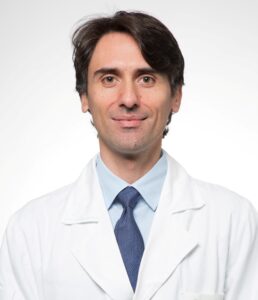
After graduating in Medicine at Campus Bio-Medico University of Rome in 2008, I have carried out a PhD at Queen Mary University of London under the supervision of Prof. Ahuva Nissim (from 2010 to 2014) and then a medical specialization in Endocrinology and Metabolic Diseases under the supervision of Prof. Paolo Pozzilli (from 2012 to 2016). Currently, I am Associate Professor of Endocrinology at San Raffaele University of Rome. My primary research activity aims to investigate the role of oxidative post-translational modifications of insulin and other beta cell antigens in the pathogenesis of type 1 diabetes. The final objective is to develop novel diagnostic biomarkers and target therapies for cure or prevention of type 1 diabetes, based on oxidative modifications of insulin. Main achievements of my research include the identification of antibody and T cell responses towards neo-antigenic insulin peptides induced by oxidative modifications. I have received several national and international awards, and since 2013, my research has been supported by competitive grants founded by the European Foundation for the Study of Diabetes, the Juvenile Diabetes Research Foundation, the Italian Ministry of Health and the Italian Ministry of University. Additional research activities are focused on: i) the effect of obesity and diabetes on bone metabolism; ii) the effect of glucose on immune response to SARS-CoV-2 as well as biomarkers of COVID-19 severity in patients with diabetes or obesity
Qizhi Tang, PhD
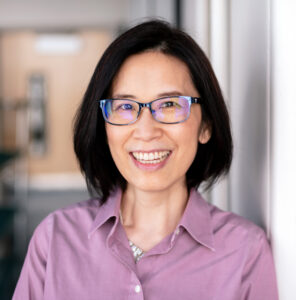
Qizhi Tang, Ph.D., is a professor of immunology in the Diabetes Center, the Department of Surgery, the Gladstone Institute of Genomic Immunology, and the Institute of Regenerative Medicine at the University of California, San Francisco (UCSF). One area of research focus in the Tang Lab is on investigating regulatory T cell control of autoimmune diabetes and transplant rejection and translating insights from basic mechanistic research to novel therapies. In the past 10 years, she has led translational efforts to design and implement 10 Treg-based clinical trials in autoimmune diseases and organ transplantation. Currently, pre-clinical research in her lab focuses on developing cellular engineering strategies to enhance human Treg potency and lineage stability. Another area of research in the Tang lab is to optimize beta cell replacement therapy for type 1 diabetes by improving islet survival in ischemia and designing strategies to avoid immune rejection without systemic immunosuppression.
Nicholas Thomas, MD PhD
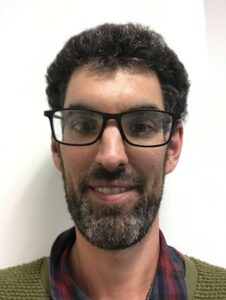
Dr. Nick Thomas is a diabetes physician and academic clinical lecturer in Diabetes and Endocrinology at the University of Exeter. Type 1 diabetes is known to occur in adults but classically thought of as a disease of children and the majority of research is in this age group. Dr. Thomas’s research is looking to improve understanding of type 1 diabetes presenting in adults.
During his PhD he undertook research looking to better describe the pathophysiology and clinical features of type 1 diabetes presenting in adults and showed this is both similar and different from when the disease presents in children. He is currently looking to understand how the disease first develops in adults and how we might identify adult cases before the onset of clinical symptoms. This work has taken on increasing relevance given the new emergence of disease modifying therapies for early type 1 diabetes.
Tim Tree, PhD

Tim Tree is a specialist in human T cell immunology with particular expertise in analysing the function of autoreactive and regulatory T cells in human health and disease. Tim is a Professor of Immune Regulation and Immunotherapy in the Department of Immunobiology, King’s College London. He is Head of the Diabetes UK/JDRF funded Type 1 Diabetes Immunotherapy Consortium Mechanistic Core and leads the Biomarker Work Package of the INNODIA Harvest EU Consortium both of which aim to understand and arrest the development of type 1 diabetes.
Kendra Vehik, PhD, MPH

Professor of Epidemiology, Health Informatics Institute at the University of South Florida
Kendra Vehik is an epidemiologist and applied biostatistician at the University of South Florida whose work is focused on understanding what genetic and early life exposures initiate the appearance of the first islet autoantibodies and progression of type 1 diabetes. She is a collaborating investigator in many type 1 diabetes studies, including SEARCH, TEDDY, TrialNet, DPT-1 and DISCOVER studies. Dr. Vehik also serves as co-Chair of the TEDDY Publications and Presentation Committee and oversees the dissemination of scientific content for the TEDDY study.
Matthias von Herrath, MD
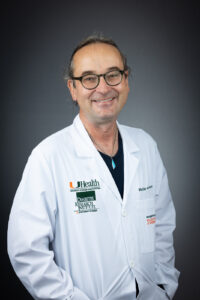
Dr. Matthias von Herrath, MD, is a distinguished physician-scientist with a remarkable reputation in immunology and drug development for type 1 diabetes. He has a strong background in academic medical research and the pharmaceutical industry, particularly in clinical translation of immune-based interventions for autoimmune and metabolic diseases.
Currently, Dr. von Herrath is the Scientific Director of the Diabetes Research Institute (DRI), University of Miami School of Medicine. In this role, he spearheads innovative research aimed at delaying, preventing, and ultimately curing type 1 diabetes, leading a team dedicated to advancing scientific discoveries. Additionally, he serves as Vice President and Senior Medical Officer at Novo Nordisk, a major global healthcare company, where he contributes his extensive industry knowledge to the development of new therapies, focusing on their safety and efficacy.
Dr. von Herrath’s career is highlighted by significant contributions to immunology and drug development, effectively bridging the gap between academia and the pharmaceutical industry. He has been involved with the organ donor network (nPOD) for a long time, focusing on understanding T1D pathology. His work has been recognized with numerous awards, including the American Diabetes Association’s Outstanding Scientific Achievement Award in 2008, the German Diabetes Society’s Langerhans Award in 2014, and a lifetime achievement award from nPOD in 2018. These accolades underscore his impact on the field and dedication to improving the lives of those with type 1 diabetes.
John Williams, PhD

Dr. Williams graduated from UC Santa Cruz with a degree in Chemistry. He obtained his PhD, again in Chemistry, at Columbia University under the direction of Dr. Ann McDermott using solid state NMR to measure protein dynamics. Subsequently, he went to EMBL Heidelberg as a Alexander von Humboldt fellow, learning protein crystallography from Dr. Rik Wierenga, solving the Src kinase structure in the process. He returned to NYC, joining Dr. Wayne Hendrickson’s lab as a Leukemia and Lymphoma Special Fellow where he continued to study protein kinases and dynein motor proteins. He took his first position at Thomas Jefferson University where he turned his attention to protein engineering and antibody design. In 2008, he joined the Beckman Research Institute at City of Hope. His research program primarily focuses on structural and biophysical methods to identify sources of energy additivity and multivalency in macromolecular complexes and use these properties to develop new tools and novel therapeutics. Based on an ‘atoms-up’ approach, he and his research team have developed chemically-induced molecular traps; tumor-activated, masked antibodies, BIONICs, and new monoclonal antibody (mAb) technology called meditopes. Some of these technologies have been licensed out and are making their way to the clinic, including a masked CTLA4 mAb which is now part of Xilio Therapeutics (NASDAQ: XLO – whom are running three clinical phase 1/2 trials). Dr. Williams is working closely with the T1D team at City of Hope with the goal of generating novel therapeutics to treat T1D.
Jordan Wright, MD PhD
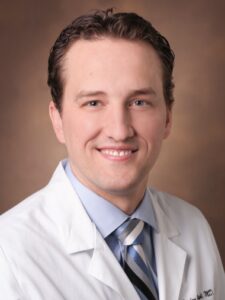
Jordan J Wright, MD PhD, is an Endocrinologist at Vanderbilt University Medical Center and the Nashville Veterans Administration Hospital. He received his Bachelor’s degree from the University of Utah before completing MD and PhD training at the University of Michigan. He then completed residency in Internal Medicine and fellowship in Endocrinology at Vanderbilt University Medical Center.
Having performed his postdoctoral research under the mentorship of Alvin Powers and Marcela Brissova, he now studies pathophysiologic processes in the human pancreas in diabetes. He focuses on exocrine changes in type 1 and type 2 diabetes and on mechanisms of amyloid-induced toxicity in human islets. His work is supported by grants from the NIH and the Veteran’s administration.